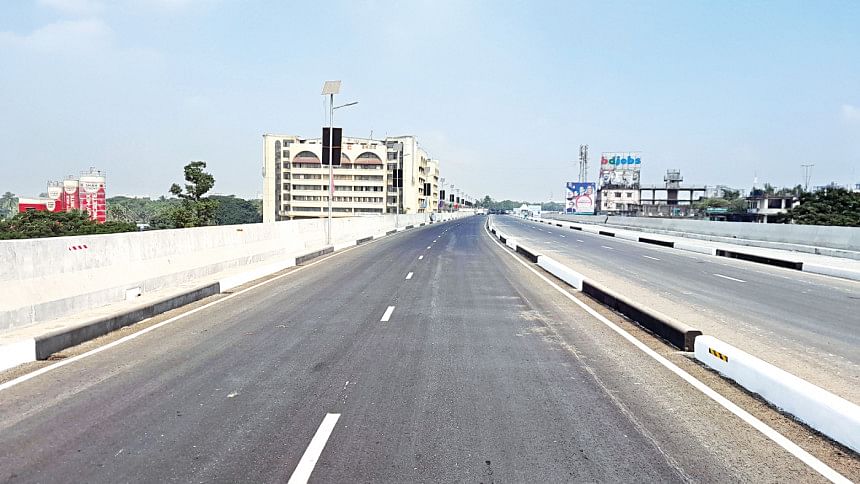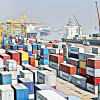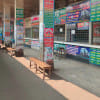Transport cost goes up, impacting price of essential goods

A three-day blockade enforced by major opposition parties and protests of garment workers disrupted the supply chain of daily essentials and sent the cost of transport higher, according to industry people and traders.
The higher transport costs are said to have raised the prices of essential commodities, adding to the woes of the consumers who have been struggling because of higher inflation for the past 18 months.
Truck, covered van and lorry owners have increased the fare by 20-40 percent due to the blockade since most vehicles have stayed off the roads fearing violence. As a result, traders say, they have had to pay extra to move goods.
"City Group is now able to supply 70 percent of the products to the market compared to normal times," said Biswajit Saha, director for corporate and regulatory affairs at the commodity importer and processor.
He says the group usually delivers goods to different parts of the country in its own transport as well as rented vehicles. Under the current circumstances, rented vehicles are not available.
Shafiul Ather Taslim, director for finance and operations at TK Group, one of the largest cooking oil processors, said before the blockade, the company's vehicles carrying goods would leave its warehouses in Dhaka at 6am for different places in the country. Now they set out at 3pm or 4pm.
"They reach destinations at mid-night, a time when workers are not available. As a result, the vehicles can't return to Dhaka the next morning and thus can't complete more than a single trip in a single day whereas they would complete two trips before the blockade."
"This has raised the cost of transportation and labour. Overall, we are in a bad situation."
Speaking on condition of anonymity, an executive of Meghna Group of Industries, echoed the same sentiment.
"Owing to the supply chain disruption, we can't ensure a normal supply of products in line with demand."
Mohammad Hafiz Uddin, an onion wholesaler in the capital's Shyambazar, said it used to cost Tk 25,000 to bring a truck full of onions from Chattogram to the capital before the blockade started. It has now increased to Tk 35,000.
Mohammad Amirul Islam, a vegetable wholesaler in Karwan Bazar, said the cost of moving a truck of vegetables such as gourds and cucumbers from Thakurgaon to Dhaka has increased to Tk 32,000 from Tk 23,000.
Ali Hossain, a clearing and forwarding agent in Chattogram, says the fare of trucks and covered vans has gone up by Tk 2,000 to Tk 6,000.
For example, the rent of a covered van used to send goods from Chattogram port to Gazipur has surged to Tk 21,000 from Tk 15,000 a week ago.
Chowdhury Zafar Ahmed, general secretary of the Truck and Covered Van Owners Association, said though the imported goods are released from the port during the blockade, export-bounded goods are not being shipped.
"Thus, vehicles are returning empty after delivering imported goods."
M Shahadat Hossain, chairman of Bangladesh Terry Towel & Linen Manufacturers & Exporters Association, said workers are aware of the ongoing situation in the garment sector. Besides, they get at least a 5 percent increment every year.
"I don't know why workers' unrest has erupted across the country."
The unrest comes at a time when a minimum wage board, comprising representatives from owners, workers, the government and independent organisations, is working to fix a new minimum wage for apparel sector workers.
"Owners have agreed to implement the new wage from December 1. So, the unrest is not acceptable as it hampers the production," said Syed M Tanvir, managing director of Pacific Jeans Ltd.
He said businesses are worried about deepening political unrest as they face challenges in maintaining lead times.
"It is really tough to run business amidst political instability," said Mohammed Amirul Haque, managing director of Premier Cement Mills Limited, calling stable political situation and good governance vital for sustainable businesses.



 For all latest news, follow The Daily Star's Google News channel.
For all latest news, follow The Daily Star's Google News channel. 








Comments